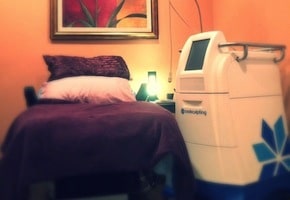1. Move Around Regularly
Although it may feel counter-intuitive, getting up and moving around occasionally will help your body speed recovery, notes Livestrong.com. “Leave your bed two to three times per day and walk as much as you are able, or as your doctor advises,” suggests the site. If you’re not mobile, then try to change positions in bed now and then, it adds.
This may require some assistance to safely get out of bed, but don’t be afraid to ask for it for the sake of your health. You may also need to time your doses of pain medication to allow you to get out of bed relatively comfortably (have someone help you walk if there are balance issues).
2. Manage Your Scar
It’s important that your surgical area heal quickly to help avoid any infection, and there are some ways to help assist in this process. If allowable by your medical team, dress the wound in a way that will allow it to remain moist and clean, says SurgerySupplements.com. “Research shows that moist wounds heal up to 50-percent faster,” it notes.
While many try using vitamin-enriched oils and lotions to keep the skin hydrated, this is actually not an effective method, according to the site (it says vitamin E creams can actually worsen scars). The source suggests silicone sheets and adhesive tape, as well as using a sunscreen stick to protect the wound site from UV ways “for at least a year after your surgery” to prevent permanent discoloration.
3. Eat Enriching Foods
Your diet will of course become the fuel your body needs to heal, and getting the right nutrients will ensure minimal recovery time. UnityPoint.org says you should try to eat certain foods, even if your stomach is telling you otherwise.
Foods that aid in combating fatigue as well as wound healing include protein (chicken and eggs), Vitamin C (fruit), B12 and iron (fish and eggs), as well as fiber and probiotics (yogurt with granola). Try to avoid overly sugary foods, as this can cause more fatigue due to sudden changes in blood sugar levels.
4. Have Outside Support
While nursing staff and doctors do what they can to help you, it’s not a bad idea to have someone else on your team that can advocate on your behalf after you’ve had an operation, says the Washington Post.
This friend or family member can monitor hand-washing, help coordinate your medications, and be the liaison to ask questions to the health team when you’re too groggy to do so. It’s also generally pleasant to have a loved one around so you don’t feel like you’re on your own (just make sure it’s not someone who annoys you after an hour).
5. Bank your Blood
Dr. David Williams advises on his website that you should store some of your own blood prior to surgery, noting, “some of the most important steps you can take to recovery from surgery happen before you even reach the hospital doors.”
This pre-surgery “precaution” called autologous transfusion is important if you’re having surgery that requires blood transfusions. This is more possible when you have a scheduled surgery such as a hip replacement and even bypass procedures, notes the source. It adds that the chance of infection triples when there’s blood transfusion required, but a University of Michigan study found those who banked their own blood had the lowest risk of major post-op problems in the 100 days after surgery.
6. Avoid Too Much Sun
While some sunlight is helpful in delivering Vitamin D, which is “vital for wound healing and a number of other bodily functions,” too much of a good thing can be a problem, notes AdvancedTissue.com. UV rays from the sun can actually weaken the immune system, adds the source.
It also notes that surgical scars are more susceptible to sunburns than other areas of your skin. It suggests keeping the affected out direct sun for the first year or risk permanent discoloration. Use sunscreen that is rated SPF-30 or higher on wound sites, it adds. Proper dressings will also block out harmful UV rays.
7. Use Supplements
While a healthy post-op diet is important as we mentioned earlier, you can actually begin fortifying your system with vitamins before the procedure, according to MediCorx.com. “Beginning proper supplementation prior to surgery can also enhance the effects of a speedy recovery, although continuing the regimen post op is also important,” it notes.
While extra doses of Vitamin C and E can be helpful (talk to your doctor or pharmacist about recommended dosage), it also lists Bromelain – which is a strong enzyme that aids in breaking down proteins, your body’s building blocks. It also has anti-inflammatory effects without the blood-thinning properties of some medications (NSAIDS), it explains.
8. Avoid Alcohol
An article in Reuters notes that those who “have more than a couple of alcoholic drinks every day” tend to experience more post-op problems compared to light drinkers or those who don’t drink. Wounds heal slower and infections are more common when your body is plied with higher amounts of alcohol, according to a review cited in the article.
Although the review didn’t conclude what positive effects there were from cutting down on drinking before a surgery or when to do it (although another study cited showed risks are reduced if you quit drinking a month before), you may want to talk to your doctor if you’re having more than a couple of drinks per day and expecting an operation.









